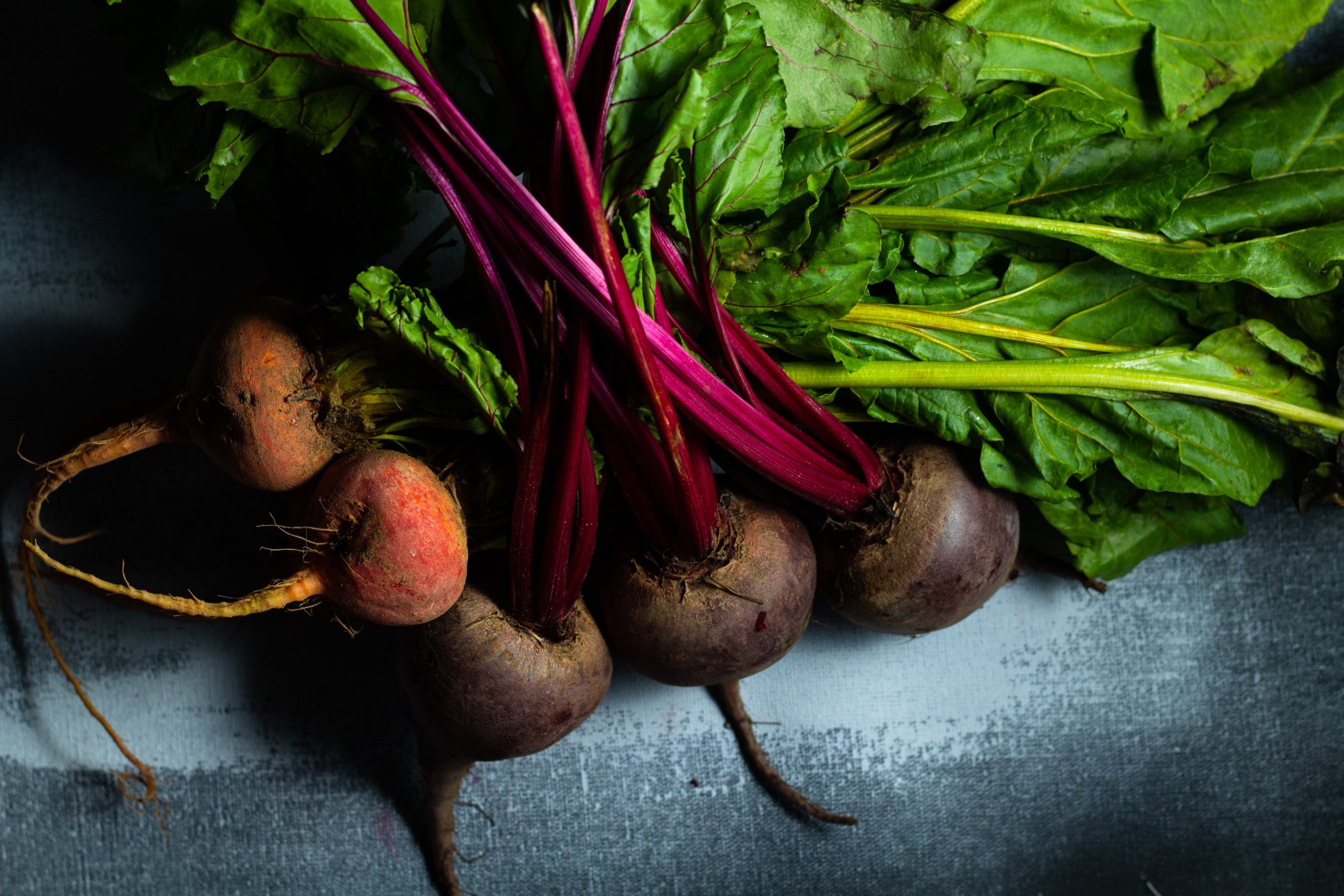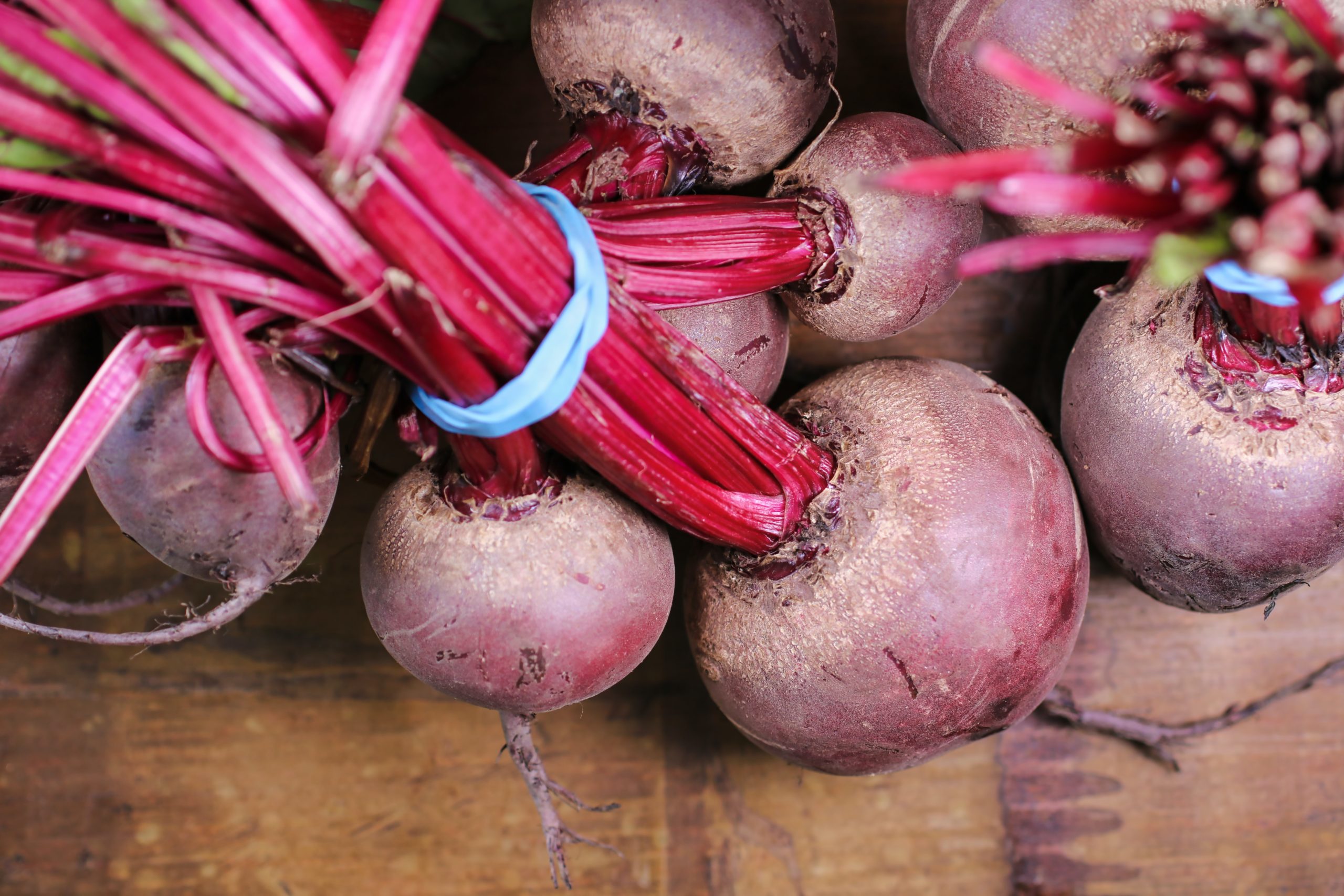Many individuals have strong opinions towards beets (typically negative ones), but understanding how to cook them properly can change people’s minds for the better. If you don’t know about cooking beets, try one of these roastings, steaming or boiling them. Beets, often known as beetroots, are colorful root vegetables. Beets, on the other hand, with their ruby red and sunset yellow hues, are one of the most misunderstood–and most disliked–vegetables.
Beets can absorb a lot of mineral flavor from the soil they’re planted in. Some people enjoy that flavor. On the other hand, others see it as a mammoth that must be defeated before a beet can be served. Beets are high in vitamins and minerals yet low in fat and calories. They’re also a good source of folate, manganese, and copper, among other nutrients. Beets have a high content of nitrates, which can decrease blood pressure.
How To Prepare Beets?
Beets are lovely cooked, roasted, steamed, or grilled in various ways. The trick is to try out different beet-cooking ways until you find one you like.
Remember that both red and yellow beets contain natural dyes and will stain whatever they come into contact with, including your kitchen linens and hands. Take proper care of them. Staining can be avoided using paper towels or cloths, and latex gloves can also be used to protect your skin.
You may use beets in various ways once they’ve been cooked. Cooked beets can be added to salads, made into hummus, or blended into smoothies. You can dice them for slaw, quarter them for a grain bowl, or mash them for a dip or spread. In a galette or quesadilla, their thick and chewy texture is ideal.
Peel the cooked beets and keep them in an airtight glass container for two to three days if you aren’t going to use them straight away.
Unless you plan to cook with beets right away, you should prepare them for storage when you bring them home from the store. Beets that are adequately stored will stay longer and have a superior flavor.
1. Remove the greens off the beets, leaving at least 1 inch of stem attached.
2. Wrap lightly in paper towels and refrigerate for up to two weeks in a plastic zip-top bag.
Remove the beets from the refrigerator and clean them lightly with a vegetable brush to remove dirt and debris before cooking. After washing the beet, prepare it according to how you intend to cook it.
What To Look For When Buying Beets At The Store?
Beets come in various sizes, from tiny radish nibbles to fist-sized bulbs. Small to medium beets are suitable for most dishes, and large beets are ideal for roasting since they can withstand low heat and remain toothsome and delicate.
Look for beets that are mainly blemish-free, with no cuts or dents in the skin, whether they are red or golden beets. The taproot, a long, thin root that hangs from the bottom of the beet, should be present in whole beets if possible.
Look for vivid and fresh leaves, not wilted, if the beet greens are still attached. Even if you aren’t planning to cook the beet greens, the leaves indicate how fresh the beets are.
What Are The Benefits Of Beets?
Beetroots, often known as beets, are colorful and adaptable vegetables. Their earthy flavor and scent are well-known.
Beets are high in essential vitamins, minerals, and plant compounds, many of which have therapeutic benefits, in addition to adding a splash of color to your meal.
Furthermore, they’re tasty and straightforward to incorporate into your diet in recipes like balsamic roasted beets, hummus, fries, and salads, to name a few.
Here are four scientifically proven beet advantages, as well as several delicious ways to eat more of them.
1. There are a lot of nutrients in a small number of calories
Beets have a nutrient profile that is second to none.
They’re low in calories, but they’re packed with essential vitamins and minerals. They contain a small amount of practically every vitamin and mineral your body needs.
Beets are high in folate, an essential nutrient for growth, development, and heart health.
They’re also high in manganese, which helps with bone growth, nutrient metabolism, and brain function, among other things.
They’re also high in copper, which is needed for energy production and the creation of some neurotransmitters.
2. It Might Be Able To Help You Maintain Your Blood Pressure In Check
Beets have been extensively researched for their ability to lower high blood pressure, which is a crucial risk factor for heart disease.
In specific trials, Beetroot juice has been shown to lower both systolic and diastolic blood pressure.
The effect appears to be more vital for systolic blood pressure, which is the pressure your heart experiences when it contracts, rather than diastolic blood pressure, which is the pressure your heart experiences when it relaxes. Raw beets may also have a more significant effect than cooked beets.
The high content of nitrates in this root vegetable is most likely to blame for these blood pressure-lowering benefits. Dietary nitrates are converted in your body to nitric oxide, a chemical that dilates blood vessels and lowers blood pressure.
Beets are a good source of folate as well. Several studies suggest that increasing your folate consumption can dramatically lower blood pressure levels, despite contradictory outcomes from research.
However, keep in mind that the effect of beets on blood pressure is just transient. As a result, you must consume them regularly to reap long-term heart-health benefits.
3. Has The Potential To Boost Athletic Performance
Several studies have revealed that dietary nitrates, such as those contained in beets can help athletes perform better.
Nitrates appear to improve physical performance by increasing the efficiency of mitochondria, the cell’s energy-producing organelles.
According to one study, Beetroot juice can improve endurance by lengthening the time it takes to become weary, improving cardiorespiratory performance, and increasing athlete efficiency.
Beet juice has also been proven to boost cycling performance and increase oxygen consumption by up to 20%, which is promising.
It’s worth noting that blood nitrate levels peak 2–3 hours after eating beets or drinking beet juice. As a result, it’s ideal for ingesting them a few hours before training or competition to get the most out of them.
4. It Has The Potential To Promote Intestinal Health
Beets have 3.4 grams of fiber per cup, making them a good fiber source.
Fiber skips digestion and goes straight to the colon, feeding good bacteria and bulking up feces.
Constipation, inflammatory bowel illness (IBS), and diverticulitis are just a few digestive disorders that can be avoided by doing so.
In addition, fiber consumption has been related to a lower risk of chronic diseases such as colon cancer, heart disease, and diabetes.
Is The Sugar Content Of Beets Too High?
Beets have a higher sugar content than many other vegetables, with roughly 8 grams in a serving of two small beets. However, this isn’t the same as consuming 8 grams of sugar from a cookie. “Beets are abundant in fiber,” explains Linsenmeyer, “which retains the sugar and inhibits its absorption into the bloodstream.” Even though they come from different plants, both cane and beet sugars contain 99.95 percent sucrose. They do, however, have a small fraction of contaminants (about 0.02 percent) that is distinct. There is no difference between white cane and beet sugars in human nutrition and health.
How To Grow Beets At Home?
If you have enough space, beets are pretty straightforward to cultivate. Plant beets as soon as the ground thaws in the spring. The bulbs require growing space and love loamy soil (a wet blend of dirt and sand). Plant seeds roughly every 4 inches, 1 inch deep. Consistently expose them to the sun and water.
Your seeds will have changed into gorgeous beets and will be ready to harvest in approximately 8 to 10 weeks. You can restart the process in late summer for a fantastic fall harvest.
Conclusion
Beets are high in nutrients and have numerous health benefits. They can benefit your brain, heart, and digestive system, be a fantastic supplement to a balanced diet, improve athletic performance, reduce inflammation, and perhaps delay cancer cell growth. Beets are also delicious and simple to incorporate into your diet, and they’re fantastic in salads, side dishes, smoothies, dips, and juices.


